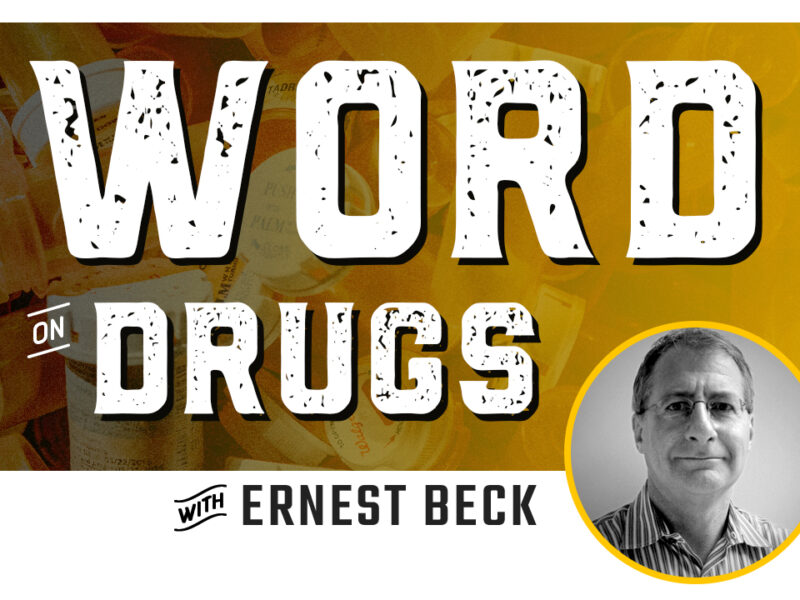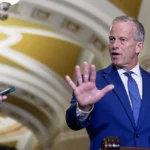THE WORD ON DRUGS: As Psychedelics Hit the Mainstream, Experts Urge Caution
Hallucinogens are gaining medical ground, but are approvals moving too fast?
- Published In: Other News & Features
- Last Updated: Jul 13, 2023

By Ernest Beck
Special to the Wyoming Truth
As marijuana legalization continues to spread across the country, another class of drugs — powerful psychedelics such as LSD and psilocybin, which can induce hallucinations and feelings of euphoria — are also capturing the imagination of more and more Americans.
Silicon Valley tech executives take them to be more creative and innovative, while military veterans struggling with post-traumatic stress disorder (PTSD) seek out therapies that include psychedelics. NPR reports that moms are turning to small amounts of psychedelic mushrooms (psilocybin) to cope with the stress of parenting.
The fact that such drugs are illegal on the federal level has done little to counter the surge of interest in their potential therapeutic benefits. In 2020, an estimated 1.4 million Americans tried hallucinogens for the first time, according to the National Survey on Drug Use and Health.
Fueling the psychedelic craze is an emerging body of evidence showing that some of these drugs — when paired with therapy — could treat not only PTSD but also such other mental health conditions as depression, anxiety, alcoholism, substance use disorder and possibly even prolonged grief.
This is hardly a fringe movement: the National Institutes of Health is involved in psychedelic research initiatives and prominent universities in the U.S., including the University of Wyoming, are also conducting research projects. The goal is to better understand how these drugs work and which applications might be practical for those struggling with crippling and drug-resistant mental health problems.
Changing minds
The rapid pace of change surprises even industry insiders such as Andrew Chadeayne, founder and CEO of CaaMTech, a drug discovery company outside Seattle focused on developing next-generation psychedelic-inspired medicines to treat mental health conditions. “Six years ago, I never would have dreamed there would be an industry involving magic mushrooms,” said Chadeayne, a chemist and a lawyer who also worked in the cannabis sector.
Today, investors are pouring money into the fledgling industry, and the value of the psychedelic market is expected to reach $11.1 billion by 2029—more than double its current value. Many cities, including Seattle, Denver, Oakland and Washington DC, have decriminalized the use of psilocybin. And this year, Oregon became the first state to legalize adult use of psilocybin in a clinical setting.
As psychedelics enter the mainstream — not in Wyoming, however, where there’s no reform initiative underway — the question is whether we are moving too fast. While some of these naturally occurring substances have been used for thousands of years, they are relatively untested in therapeutic settings.
Still, self-styled therapists are opening treatment centers. Tech honchos hold exclusive psychedelic parties that cost hundreds of dollars to attend. American women veterans traumatized by war, or even sexual assault, are seeking help in an expensive Mexican clinic to treat depression and addiction using a hallucinogen made from toad poison. (Psychedelic treatment is not part of the standard of care at veterans hospitals but can be administered as part of a research protocol).
Many doctors and scientists involved in research say that the hype surrounding these extremely powerful drugs is not yet supported by clinical evidence. Although preliminary results are promising, we’re just starting to explore their long-term potential—and the risks associated with psychedelics.
Because the Food and Drug Administration (FDA) has not approved these drugs, there is little data about physical safety. Psychedelics induce an altered state of consciousness; this can be mind-opening as well as extraordinarily harrowing, causing panic and anxiety and triggering psychotic episodes.
“You’re not likely to overdose on them, but you can have life-changing negative experiences,” Katharine Neill Harris, a drug policy researcher at Rice University in Texas, told the New York Times.
The unregulated environment surrounding psychedelics compounds these risks. There are no standardized rules, guidelines or dosages for behavioral health professionals to follow. And while there are respected and authoritative experts who can assist patients, there is also the chance of trauma and abuse.
Safe paths to market
One way forward is through the pharmaceutical industry, with rigorously tested drugs and therapies approved by the FDA and used with licensed therapists. Chadeayne believes this type of development is “fundamentally slow,” with each new drug taking a decade to reach the market.
Another option is to replicate the cannabis legalization strategy, a direct-to-consumer model in which states create and regulate adult-use marijuana markets that people are able to access relatively easily.
“In an ideal world, I would like to think that if I were a parent and had a child with a traumatic experience or a psychological problem, it wouldn’t be too challenging to find or grow magic mushrooms,” Chadeayne explained. “What I want to see is responsible use and avoiding misuse.”
The research his company is conducting — including with Professor Elliott Hulley at the University of Wyoming — is aimed at improving safety and efficacy by ensuring that the fundamental chemistry behind new psychedelic drugs is sound.
As Chadeayne put it, “What we want to do is dial down the side effects [of psychedelics] and increase the therapeutic potential of the psychological benefits.”
This is a sound approach in my opinion. All too often, the promise of new drugs obscures the reality of what they can truly accomplish. So strong is the desire to find solutions to intractable and increasingly pervasive mental health conditions that we might overlook the negative consequences and side effects. And in a rush to provide access to these therapies — to satisfy investors or patient advocacy organizations or to keep up with the latest Twitter or TikTok trends — we might endanger patients and public health.
Psychedelics offer hope. Excitement is building for further discoveries, especially at a time when the most commonly used drugs for depression and other psychiatric conditions are becoming less effective and the pipeline for new medications in this area is already remarkably slim.
But before widening access to these drugs, we need more research and clinical trials to determine their curative potential and how patients can benefit the most from them.
Ernest Beck writes about drug policy. He is the former communications lead for the Rosenthal Center for Addiction Studies in New York.













